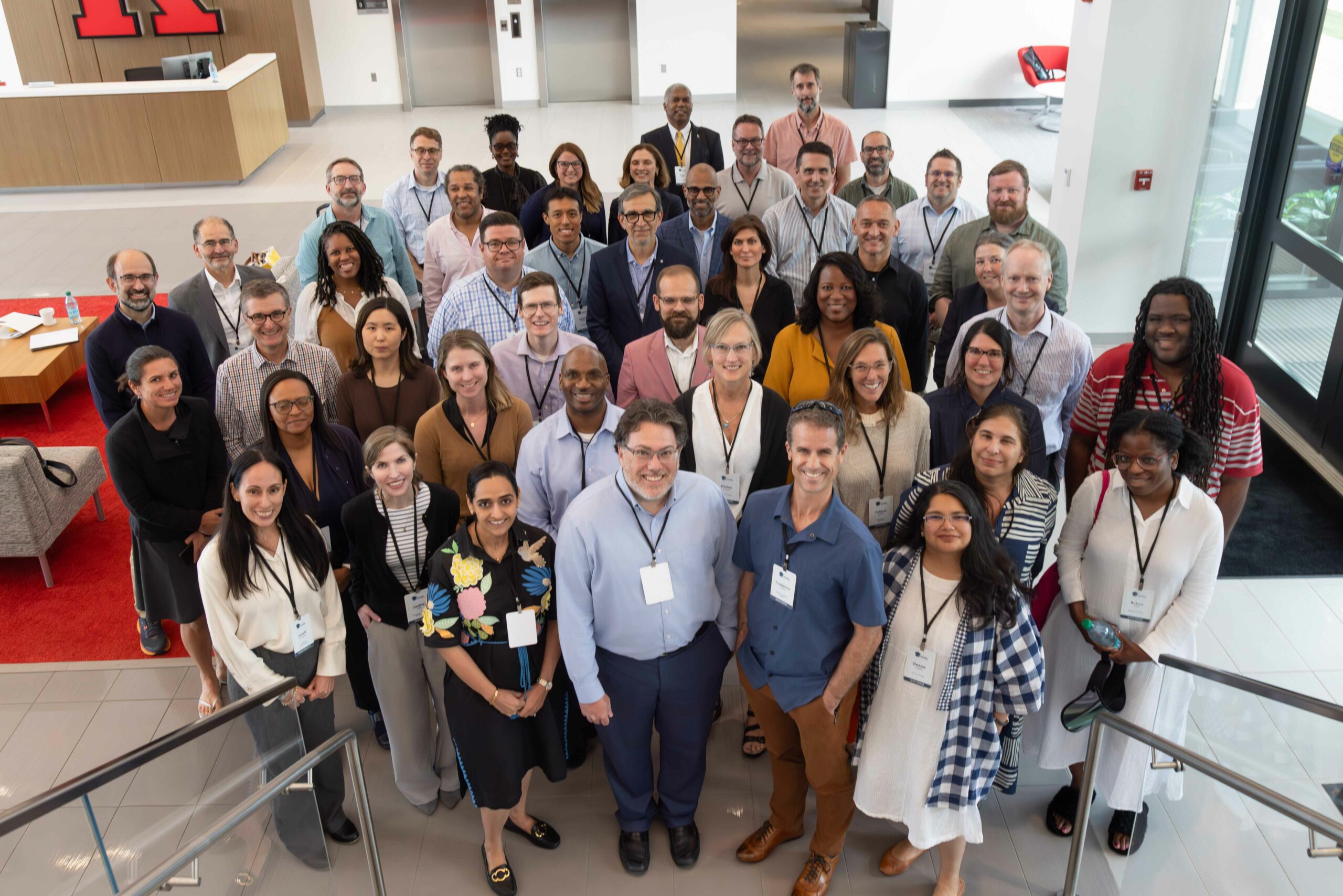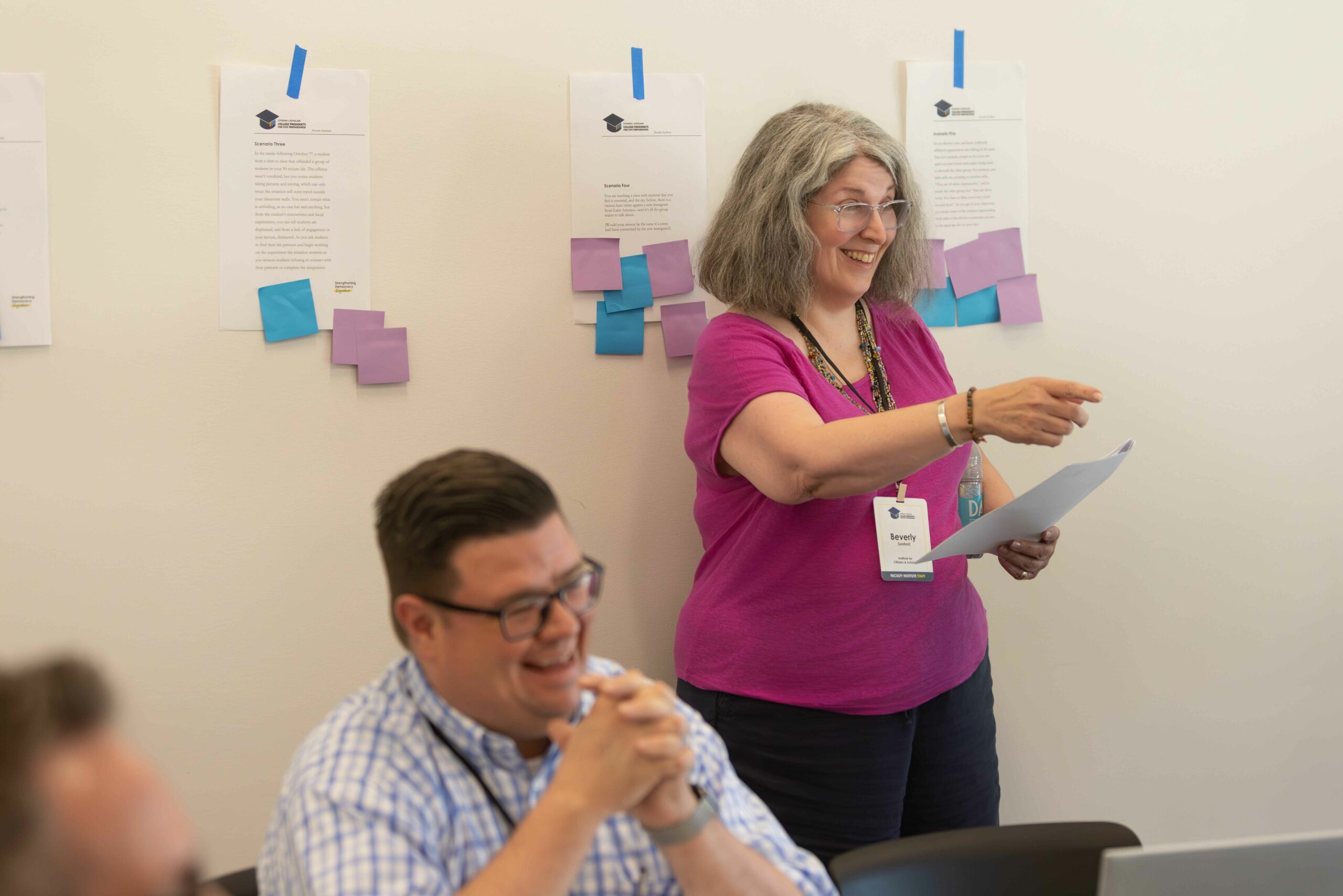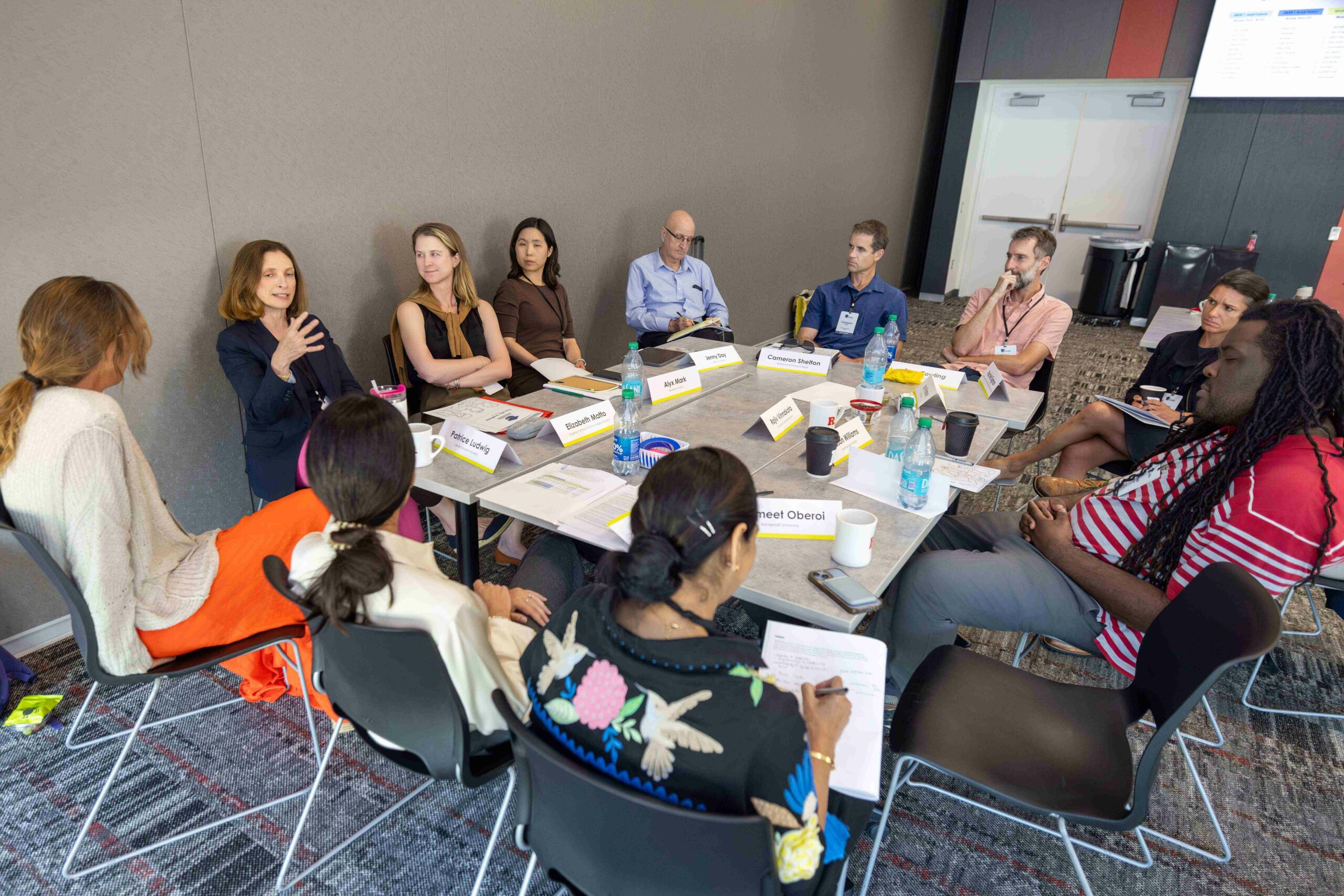Is Neutrality Possible…or Even Necessary? Reflections from the 2024 Faculty Institute
July 24, 2024
Share

Starting in the classroom, colleges and universities must prepare students for full participation in our democracy. This involves practicing listening, debating, and collaborating with people with diverse backgrounds and beliefs. The College Presidents for Civic Preparedness Faculty Institute was created to support faculty in developing and teaching courses that prepare students for dialogue across difference.
In these polarized times, educators face the challenge of guiding students through complex and often contentious issues, a priority shared by consortium members and their campuses. At the June 2024 Faculty Institute at Rutgers University, we asked faculty to consider approaches that align with their values and commitments to facilitating social and institutional change. While the Faculty Institute is pedagogically agnostic, it is designed to draw out the expertise of the participants and leverage an interdisciplinary curriculum. One key question posed was whether neutrality is even possible—or necessary—in academic settings.
One faculty participant pointed out that this presents a significant dilemma for faculty: the expectation to provide clear answers and the pressure to take a definitive stance in a world full of gray areas, which is contrary to the foundation of higher education. Higher education is where we learn to wrestle with nuance and complexity, where there isn’t always one answer, where we learn about diverse texts and interpretations, and ask multiple questions to gain greater understanding. Some of life’s biggest questions remain unanswered in the classroom and are meant to be further explored outside, with others, at a different time, in a different moment. Another attendee expressed anxiety about “getting it right,” noting, “Students don’t feel comfortable making mistakes, and neither do faculty.”

Some faculty members argued that social, political, and economic justice should be central when facilitating dialogue. They felt that inequality and injustice undercut core civic values and threaten the fragile foundation of our democracy. Others suggested examining “the problems underneath the problems” by using critical inquiry and productive discourse to uncover patterns of power, privilege, and discrimination. Conversely, some felt that focusing on social justice could be considered partisan, alienating students. There are certain roles, colleagues expressed, like the one we hold as faculty members where we remain objective and neutral as facilitators of change.
One participant shared their experience teaching about the Civil War in the South, aligning with the “passionate and principled impartiality” approach. They found that presenting information and allowing students to draw their own conclusions based on the mass consensus of historians was most effective. “If I said on the first day that slavery was the cause of the Civil War, I would lose one-third of the class,” they said. This approach respects students’ ability to engage critically with material and form their own informed opinions. Another faculty member advocated for stating, “This is my opinion, formed by my experience and work,” and then prompting students to disagree and poke holes at the statement.

The discussion then shifted to deeper epistemological questions and the role of activism in academia. One group emphasized teaching the political, historical, and legal frameworks for hot-button topics like genocide, apartheid, and Zionism, rather than simply offering opinions. “If there is no objectivity,” one attendee argued, “then scholars must be capable of engaging across narratives. We are to explain what’s at stake. That’s what we’re qualified to do.” This group felt that the role of faculty is to help students navigate multiple perspectives and understand their experiences without controlling the outcome. They expressed concern that colleagues with an activist mindset who aim to change minds and structures risk alienating students and pushing them toward extremism.
What’s the best way to facilitate civil discourse and encourage critical inquiry in the classroom? The challenge is not just about whether educators should take sides. We must consider how to equip students with the skills and knowledge to navigate a diverse society. The Faculty Institute provides faculty with the much-needed space to engage and think about these pedagogical frameworks and the opportunity to wrestle with the nuances and complexities with their peers before needing to lead these similar and at times divisive conversations in their classrooms. The Institute allows faculty to consider their influence on what will occur in the classroom and beyond. Most importantly, the Institute encourages them to reflect on their vital role in preparing students for active participation in our democracy.
Related: 5 Minutes with Faculty Institute Leaders: Inside the June Institute
Stay Engaged
Get More News
Join our mailing list to get more news like this to your mailbox.
Support Our Work
Help us invest in the talent, ideas, and networks that will develop young people as effective, lifelong citizens.
Ways to Support Us